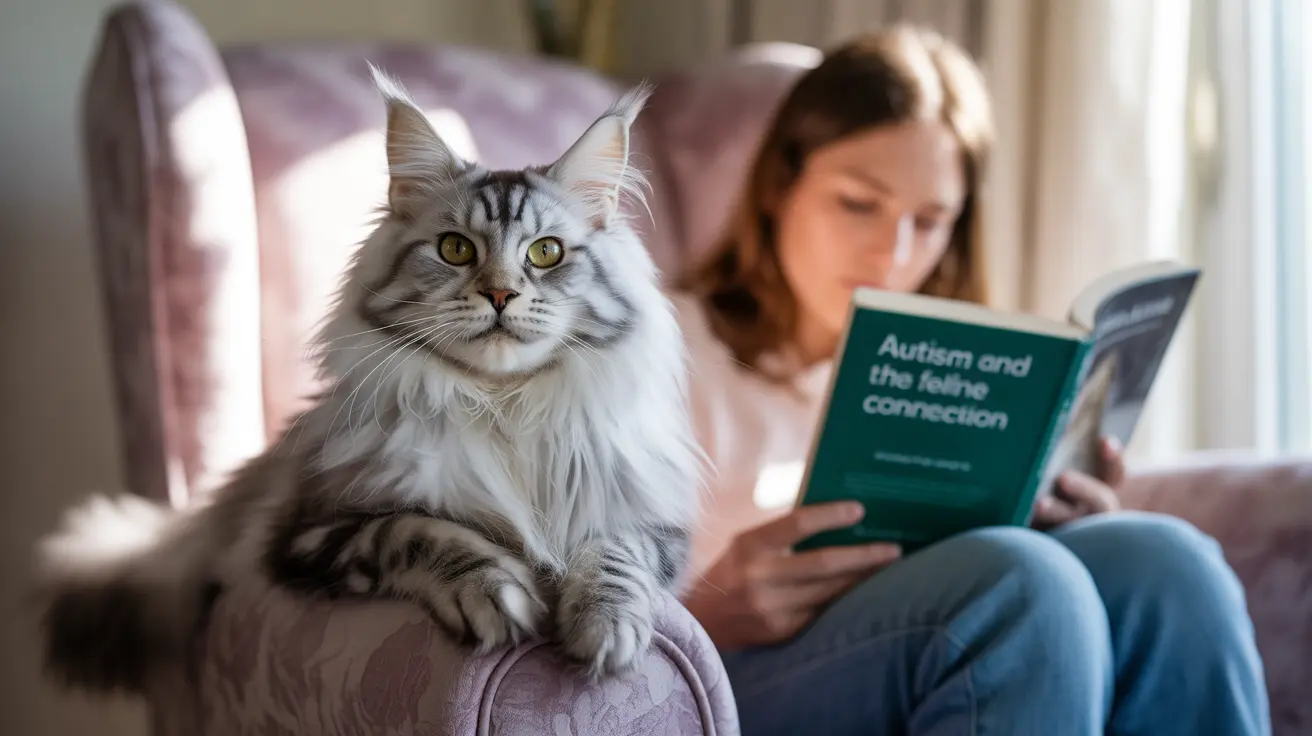Introduction
The question "are calico cats autistic" has become increasingly common on social media and pet forums. This misconception stems from the unique personalities and behaviors that calico cats often display. However, it's crucial to understand that autism is a human neurodevelopmental condition that cannot be diagnosed in cats. Let's explore the science behind calico cats' behaviors and their special relationship with humans, particularly those on the autism spectrum.
The Science Behind Calico Cats
Calico cats are not a specific breed but rather showcase a distinctive tri-colored coat pattern, typically featuring white, black, and orange patches. This coloring results from a complex genetic process linked to the X chromosome, which is why nearly all calico cats are female. Their unique genetics contribute to their individual personalities, but these traits are unrelated to any form of autism.
Understanding Typical Calico Cat Behavior
Calico cats often display strong-willed, independent, and sometimes quirky personalities. These characteristics might include:
- Strong territorial instincts
- Independent nature
- Distinctive vocalizations
- Assertive personalities
While these traits might seem unusual to some observers, they are completely normal feline behaviors and have no connection to autism or any other human neurological condition.
The Real Connection: Cats and Autism Support
Rather than being autistic themselves, cats - including calicos - can provide valuable emotional support for individuals with autism. Research shows that cats can form particularly strong bonds with autistic children, offering:
- Calming presence during moments of stress
- Non-judgmental companionship
- Opportunities for developing social skills
- Emotional regulation support
Debunking the Autism Myth
The notion that calico cats could be autistic reveals a fundamental misunderstanding of both feline behavior and autism spectrum disorder (ASD). Autism is a complex human neurodevelopmental condition that involves specific cognitive and social characteristics that cannot be applied to cats. Veterinary experts emphasize that cats' brains are structurally different from human brains, making it impossible for them to develop autism as humans do.
Why Cats Make Great Companions for Autistic Individuals
Studies have shown that cats can be excellent companions for people with autism, offering:
- Predictable routines that provide comfort
- Quiet companionship without social pressure
- Sensory experiences through soft fur and purring
- Opportunities for developing empathy and care-giving skills
Frequently Asked Questions
Can calico cats have autism or autism-like behaviors?
No, cats cannot have autism. Autism is a human-specific neurodevelopmental condition that cannot occur in felines. What might appear as "autism-like" behaviors are actually normal cat behaviors.
Why do some people think calico cats are autistic?
This misconception arises from calico cats' sometimes independent, quirky, or strong-willed personalities. However, these traits are normal feline behaviors and are not related to autism.
How do typical calico cat behaviors differ from signs of autism?
What might be interpreted as autism-like behaviors in cats (such as repetitive movements or specific routines) are actually natural feline behaviors that serve important purposes in their daily lives.
Can calico cats provide emotional support to children with autism?
Yes, studies show that cats, including calicos, can provide valuable emotional support and companionship to children with autism, often helping with stress reduction and social skill development.
What should I do if my cat shows unusual or repetitive behaviors that seem like autism?
If your cat displays concerning behaviors, consult a veterinarian. These behaviors might indicate other health issues that require attention, but they are not related to autism.
Conclusion
While calico cats cannot be autistic, they can be wonderful companions for individuals with autism. Understanding the distinction between normal feline behavior and human neurological conditions helps us better appreciate our feline friends for who they are. If you're considering a cat as a companion for someone with autism, focus on the individual cat's temperament rather than their coat color or pattern.






